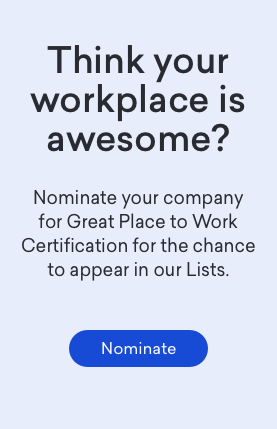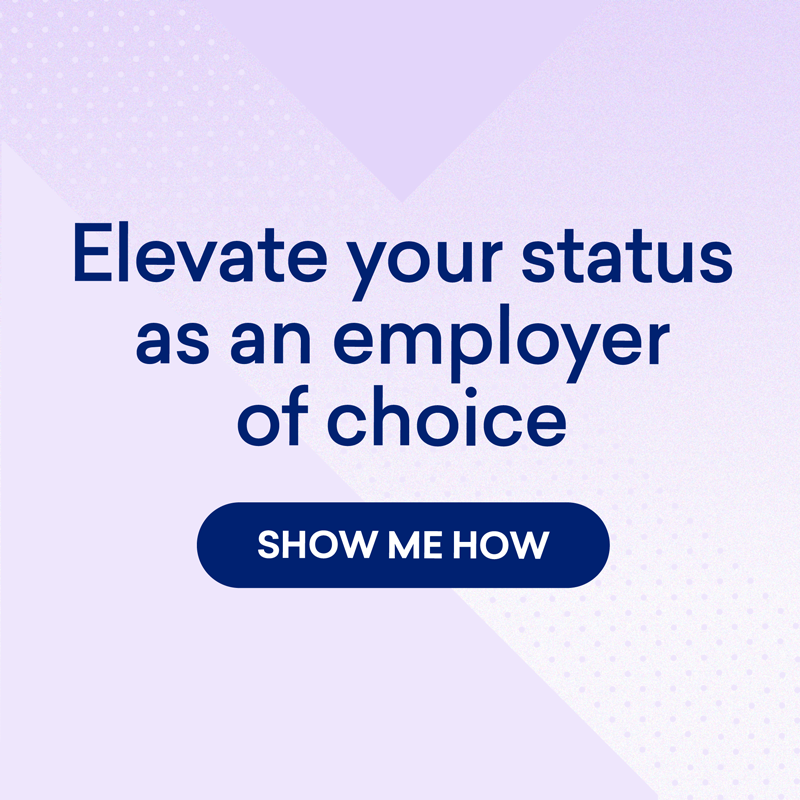Each year, Great Place to Work® Institute recognizes the very best companies to work for…most people know that. What some may not realize is that an organization cannot make one of the Institute’s lists unless it's employees believe it should be there. Seriously. Two thirds of the evaluation process rests upon the experiences of employees themselves; therefore, programs, policies and practices must satisfy the real needs of employees while helping them to build and strengthen three relationships: trust, pride, and camaraderie. So, when we think about the workplace of the future, we need to think about its employees.
Commentary abounds as to the characteristics and needs of the employee of the future. While the notables about their preferences, skills, and characteristics are intriguing, I find the most encouraging news about the future employees to be right in front of me, literally. I am a returning faculty member in the Foster College of Business, having taught undergraduates from 2001-2004, and now finding myself in front of a classroom again. Graduating seniors today are more savvy about what to expect from an employer than they were my first time around, and many are willing to forgo an opportunity at a so-so workplace in order to land a job in a great one. And, if that doesn’t make you sit up and pay attention, consider this. At least once every semester, a former student contacts me to ask if 6 months is too soon after accepting a job to quit in order to take one at a better organization. My former student (or one like her) may be the one you just hired. Eek.
So, what can organizations do in order to ensure their workplace is a great one for the next generation of employees? While there are many, to be sure, the following are those that come up in my conversations with graduating seniors most often.
Tell the story of your organization.
People of all ages want to know they are making a positive impact in the world. They want to know who they are in the organization, the organization’s place in the world, and therefore what they get to do because they work there. While most mid-career veterans can suss out the organization that will allow them to feel a sense of personal meaning no matter the state of the recruiting process, newly minted graduates gravitate to jobs pages and recruiting materials that tell a compelling story about the organization’s mission, vision, and values. Scripps Health’s careers tagline is, “Change lives. Starting with yours,” and potential applicants can see patient success stories alongside a list of job openings and benefits packages. The experience of a great workplace starts long before the first day on the job, and today’s graduating seniors have high expectations for that story. Likewise, they’ll be committed to the organization’s mission much more deeply.
Expect greatness from your managers.
In my first book with Michael Burchell, The Great Workplace, we interviewed Mike Davis, Senior Vice President of Human Resources at General Mills. He told us, “We owe people a minimum of a good, and hopefully great, boss.” General Mills and other great workplaces have it right. Tomorrow’s employees understand leadership in a way that has been uncommon up until now. They’ve taken classes leadership, completed a minor in leadership, served as leaders in student organizations under mentorship from great leaders. Their parents have been through leadership development programs and quoted books on leadership. While there is no substitute for experience when it comes to great leadership, the employee of the future will be acutely aware when they are not being managed by a good one. And, they’ll change it, either by working with mentors and internal networks or leaving the organization.
Manage the Unlearning.
While an occasional topic in a one-on-one advising session 10 years ago, I routinely find myself discussing perfectionism in an open forum during my undergraduate classes. A recovering perfectionist myself, I was well into my 30s before I realized that aiming for perfect was a recipe for disaster. Now, I see students actively breaking down their own dysfunctional beliefs, embracing their strengths, finding careers that match, and taking care to ensure their weaknesses don’t get in their way. They study strengths based leadership, and are much more likely to believe an authentic leader is preferable to a flawless one. They will gravitate toward organizations that continue to reinforce these beliefs, allowing them to be themselves – driven, creative, vibrant, and imperfect. At the 2013 Great Place to Work® Conference, Kip Tindall of the Container Store told us that one great person is worth three good ones. And, in my opinion, being great means being whole…not being perfect.
The workplace of the future will be a great workplace if employees believe it to be. Tell the story of your organization to begin building their commitment to a higher purpose. Promise (and deliver) a great manager for your new employees. And, encourage authenticity, not perfection. Every workplace can be a great one, and the employees of the future will demand nothing less.











